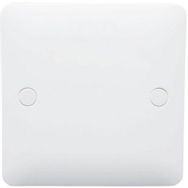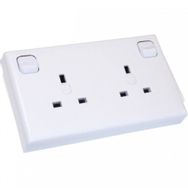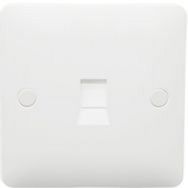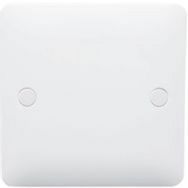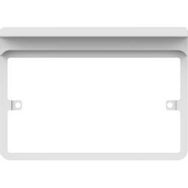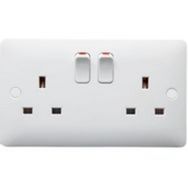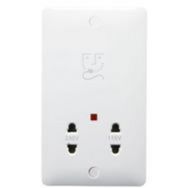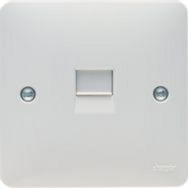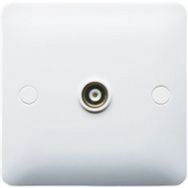Sockets
Discover our extensive range of sockets for a wide variety of applications and uses, both commercial and domestic. Choose from multiple different types of sockets from leading brands such as Eurolite, Knightsbridge, Scolmore and BG Electrical Accessories. Select a style, finish, size and width to suit your needs.
Take a look at our range of sockets below and get free delivery on orders over £50 (excluding VAT).
FAQs
What type of sockets do you supply?
- We stock a wide range of plug sockets and sockets, including:
- USB plug sockets
- Polished chrome sockets
- Shaver sockets
- Converter sockets
- Weatherproof sockets
- Data sockets
- Switched and unswitched sockets
- Coaxial sockets
- Round pin sockets
- Socket switches, covers and accessories
- Metal clad sockets
What should I consider when installing a socket?
Firstly, you will need to choose the right socket for your needs. From standard three-pin to a USB socket, there are plenty to choose from. Next, you will need to choose a convenient location and position that is easily accessible. It is also important to determine the voltage of a socket, depending on the type of device you'll be using it for. Finally, get the help of a professional if you're unfamiliar with electric work as the right tools and expertise will help you stay safe and compliant with building regulations.
Do I need an electrician to install my sockets?
Installing a new socket is a common type of electrical work due to increased demand for charging devices, as well as moving into a new property or upgrading your existing space. Installing plug sockets requires knowledge of electrical wiring, codes, and safety procedures, which can be complicated and potentially dangerous if not done correctly. It is always best to have an experienced electrician install your plug sockets and sockets for you to ensure they are safely connected to a power supply.
What safety precautions should I take when using electric sockets?
To minimise risks associated with electrical fires and electrocution, you should remember the following:
- Avoid overloading sockets
- Do not touch sockets with wet hands
- Regularly inspect your socket for any signs of damage or wear and tear.
How can I ensure proper maintenance of sockets?
Routine maintenance will help to prolong the life of your sockets and switches. Regular inspection for signs of damage such as frayed cables, broken or cracked covers, discolouration or smell of burning will help to keep your sockets performing as they should for years to come.
What type of electric socket should I use?
Choosing the right sockets and switches will ensure safety and optimal performance. In the UK, the most common type of socket is the standard 3-pin socket, which is suitable for most household appliances and devices. However, for devices such as electric ovens, dedicated cooker switches should be used to prevent overloading and separate the heavy electric load from other household devices.
Where should sockets be positioned?
Power sockets must be positioned no lower than 450mm above the floor, and light switches no higher than 1200mm from the floor. Always consult an expert to check that the positioning, wiring and installation of your sockets are compliant and safe.


